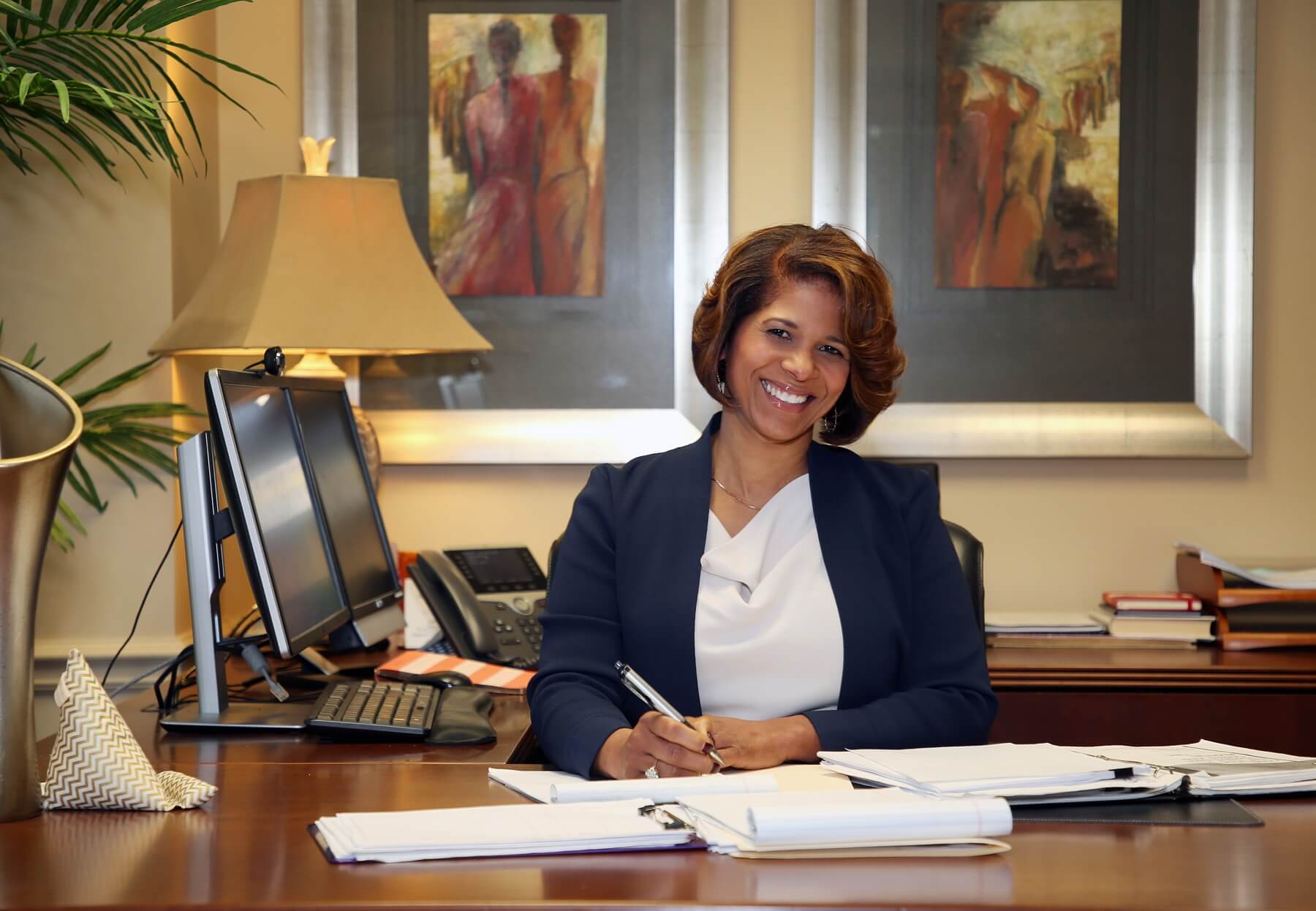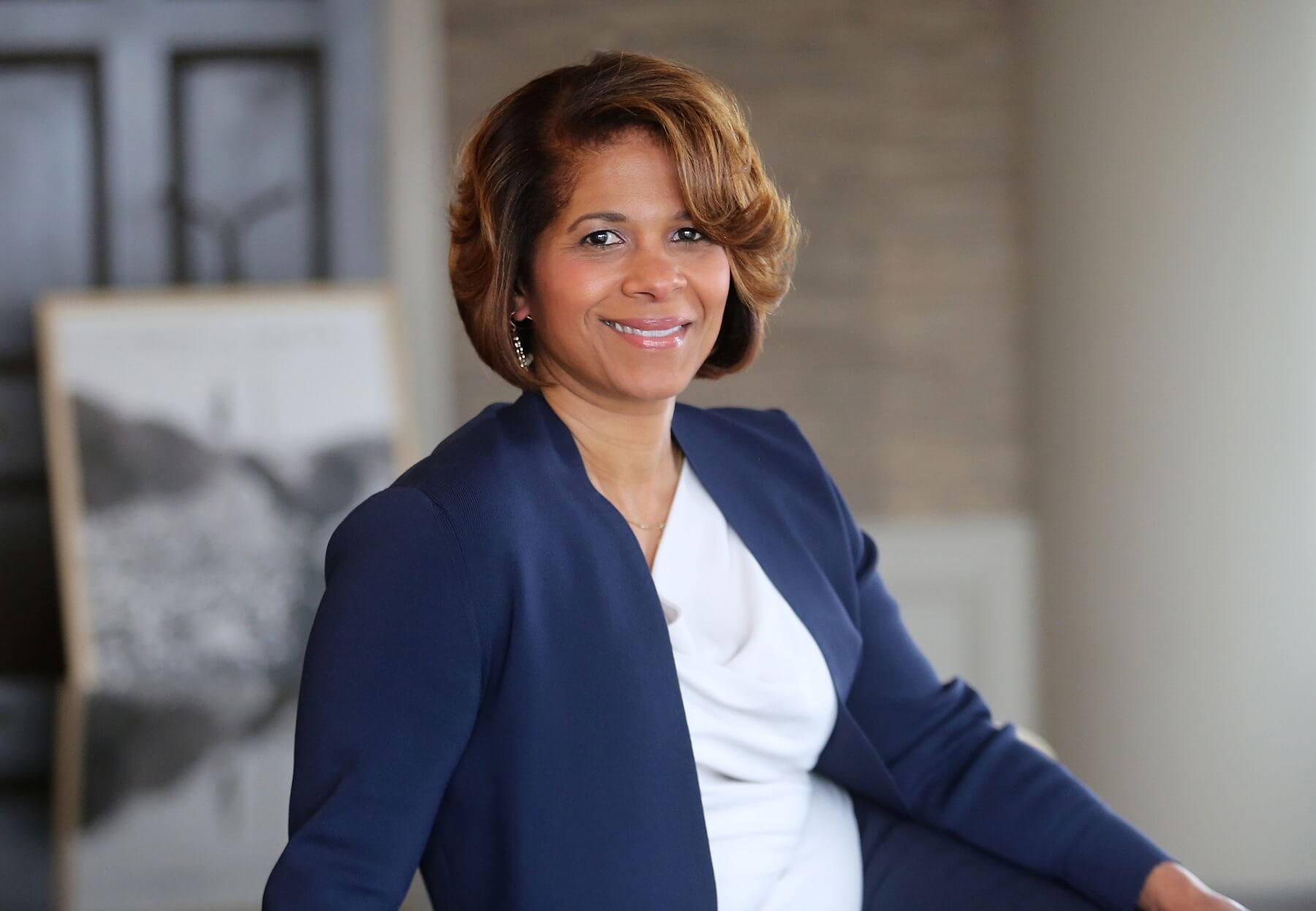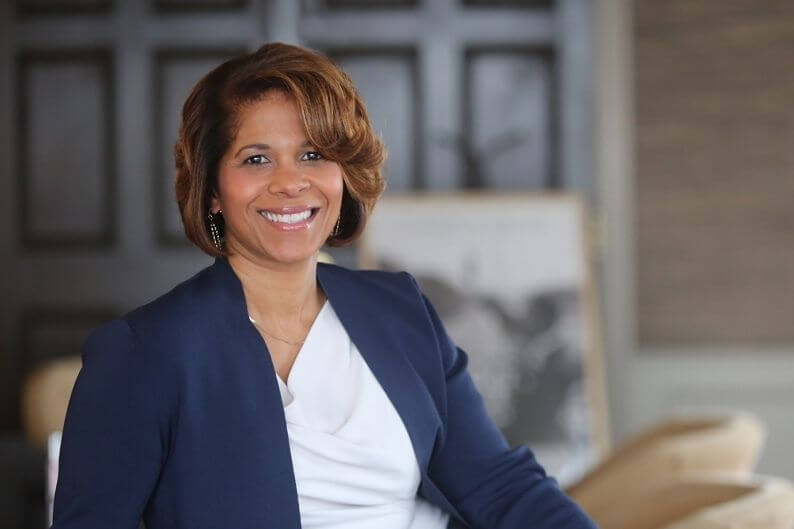She’s a born-and-raised Nashvillian who divides her time between a successful law career, tireless community service and traveling to far-off places in pursuit of adventure. But Stacey Garrett Koju also knows how to kick back, relax and enjoy life in the company of her husband, their friends and their two pups. We enjoyed meeting this amazing woman recently in the conference room of the 16th floor offices of Bone McAllester Norton PLLC, a law firm she helped found back in 2002. We know you’ll be just as inspired by Stacey as we were — meet our newest FACE of Nashville!

You grew up in Nashville. Where did you go to school?
I was born and raised in Nashville. I went to St. Bernard Academy and University School of Nashville.
What led you to a career in law?
I wanted to work in U.S. intelligence initially, but while at Duke, I gravitated toward political science and loved it. I naturally transitioned into pre-law and went from there. It was really the perfect choice for me. I love practicing law and can’t imagine doing anything else.
You’re a founder of Bone McAllester Norton. Describe what founding a law firm entails.
Charles Bone and I started Bone Law in January 2002. The two of us started at a small table and grew over the years into Bone McAllester Norton; there are now 40 of us. Sam McAllester and Mike Norton had practiced law with us at a previous firm and with Charles Bone for many years before that.
Your firm represented Cyntoia Brown, who was recently granted clemency by outgoing governor Bill Haslam. Explain the intricacies of representing such a high-profile case.
Charles Bone and Ed Yarbrough represented Cyntoia Brown in her appeals and request for clemency pro bono. They are both amazing lawyers, as is J. Houston Gordon, who worked with them on the case has been friends with Charles Bone for many years. It was amazing when we learned the news that she was going to be released! The attorneys working on this case were driven in their pursuit of justice, and put in untold hours through any years to fight for her. But Cyntoia is most deserving and earned this, and ultimately Governor Haslam deserves credit for reaching a decision for justice.

When the law works well, it’s wonderful. When it doesn’t, innocent people’s lives are negatively impacted. What are the reasons when the law doesn’t work well, and how can those reasons be eliminated?
There are so many different ways that people are impacted by the legal profession — criminal law is an obvious area. It’s difficult for the disenfranchised and those without means to obtain a private lawyer to represent them. I think those are times when it’s difficult because it can be expensive to get representation in those cases. I think in any matter where the legal profession impacts the consumer there is always the ability for those who are not aware of the law to be taken advantage of or at least not to understand what their rights are and what protections are available, such as foreclosures, debt collection, criminal law. I practiced immigration law for quite a while, and there’s always the possibility that you get an attorney who doesn’t know what they’re doing, but that’s not the real issue there. Immigration laws are so complex that when people can’t afford proper representation, they can truly lose out. Again, the lack of knowledge and lack of resources can impact people so heavily. This is why pro bono work is so important to me and this firm, but one lawyer can only do so much.
Describe the most memorable case in your career.
I’ve had quite a few of them. The one that personally reminded me of all the reasons you go to law school to help people was an immigration case. Someone came to me seeking to appeal a denial of their stay in the United States. It was a physician who did important work for his community, and I had never done that type of appeal before. But the person implored me to help, and being able to get that decision reversed and allowing that person to stay and continue doing the work they were doing was a greater gift than I ever imagined. I still talk to him — he still keeps in contact with me over these many years, and that has been rewarding to me.
The other number one most rewarding part of my career is really a client: Fisk University. It is an extraordinary institution of dedicated employees and faculty. I support the university’s mission fully and find my work with a wonderfully brilliant collection of administrators, staff and faculty, and students very fulfilling. Plus, my parents met there, so it’s a very special and neat place for me.

What are the types of cases about which you get most excited?
I primarily work in the area of corporate governance, meaning I work with the rights and obligations of the different parts of a company like its owners, board, senior executives, managers and employees. I also work with a lot of nonprofits. I love that area of law, but the cases that drive me are the ones where I’m able to help people. When people find themselves in a situation where they think all is lost, and you’re able to solve an issue or put them out of dire straits and help them reset — those are the ones that are personally gratifying to me.
Are there any types of cases you don’t enjoy being a part of?
Practicing immigration was hard for me, and I veer away from it because it’s hard not to have the same aspirations as the people you represent. Many of those cases are dependent on the discretion of government officials, and you can’t always win over discretion on the basis of rational thinking or rational approach because discretion is what it is — it’s a person’s opinion. And so many times in immigration, people’s entire lives, their careers, their hopes and dreams they have for their children are centered on the success of their immigration case, and losing them is hard. It’s hard personally for me because you want to champion their dream. You want to actualize their hopes, and so when you fail, it’s hard.

You are extremely involved in the community. Why is that so important to you to be involved and give back?
I have been volunteering since I was 14, starting in a nursing home. I loved that experience and have done some form of volunteering since. We live in a society where we are all inextricably intertwined, and as much as we can, we should give to others — it’s important to keep us all lifted and moving forward.
What has been the most rewarding experience in all of the community involvement?
I love working with the National Museum of African American Music because of the passion and the energy the museum employees and its supporters have for it. And I enjoyed serving on the Tennessee Human Rights Commission. And for Catholic Charities, whose mission is near and dear to me.
Speaking of the National Museum of African American Music, when is that opening?
It should open within another year at Fifth and Broadway by 2020.
When you’re not working or volunteering, how do you enjoy spending your time?
I love to be outside, so I attempt to watch the sunrise every morning. I think the morning skies are different in the summer and winter. In the winter, skies are clearer and you can see a lot more — the sunrise has a lot of blue, lavender and pink. Then in the summer, the sunrise comes quickly and is more yellow, orange and white to me. And I love hiking in Percy Warner. I have two little dogs — they’re sisters, and they’re usually being spoiled. And I love to entertain and cook.
You love to travel. Where are some of the places you’ve been or want to go?
My husband and I love active travel. I started off with a goal of running a half-marathon in all 50 states. I run in 30 states so far. We’ve recently hiked the Dolomites [mountain range in Italy], and we met hiking to Mt. Everest Base Camp. I’d love to go back to Alaska, which I think is an amazing place, but I’d also like to go to Ireland. So we are dreaming of our next trip, to be determined this year.


What’s something people may not know about you?
I have been a vegetarian for … let’s just say over 35 years! [laughs] I am an excellent chef, and I love to cook complex seafood and meat dishes. I love doing it! I can smell when ingredients are off to a T. I love to make my family’s Creole recipes that have been handed down. My very favorite recipe to make is crab-stuffed shrimp. It’s so fun, and they’re so pretty. And I like to make deviled crab, and roux is so fun to make. We don’t do sausage gumbo — ours is with chicken and seafood.
What is the best piece of advice you’ve been given, and who gave that to you?
It would be by my mother, who always told me to love myself.
Do you have any hidden talents?
I’m really good at turning everything into a song. You stay here long enough, I’ll turn this interview into a song.

What are three things you can’t live without aside from faith, family and friends?
Laughter, because I love to giggle … music … and hope. You can’t live without hope!
Indeed you can’t! Thank you, Stacey, for being a strong and guiding light in our community. And thank you to Leila Grossman of Grannis Photography for the beautiful photos of Stacey.
**********
Before we embark on a new year of FACES of TriStar, we want to look back once more at our 2018 FACES of TriStar, each one an inspiration in their own way. Click HERE!




















